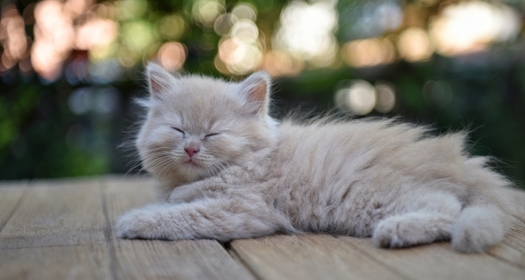

Owning a cat is a big responsibility, and a privilege.
More and more cat owners are concerned with giving their pet the longest, happiest life possible as a part of the family. Here then are some tips for ensuring your cat’s well being:
Provide good quality food and fresh water- any food chosen needs to be a complete diet, be appropriate for the cat’s life stage (kitten, adult or senior) and be fed in appropriate amounts. Home made diets are not recommended for cats, as they have very specific nutritional requirements which are hard to meet. Allowing a cat to graze food all day can cause obesity and fussiness, so regular meal times are best. Raw chicken necks or wings should be given once a week to keep the cat’s teeth healthy (NEVER cooked bones though). Talk to your vet about the best nutritional option for your cat. Fresh water is vital, but avoid things like milk, large amounts of liver, raw eggs and fish, and human snacks like chocolate.
Provide proper shelter and hygienic conditions- cats love a warm quiet place to sleep, such as cat igloos or with their people. A quiet escape area is especially important if you have small children or other pets. Ensure that the environment is kept clean, especially the litter box as toileting problems can otherwise occur.
Ensure the environment is safe- this is especially important if you have just adopted a young kitten, as they tend to get into everything. Things such as rat or snail bait, blind cords, power cords, breakables that can be knocked over , toxic plants and other pets that may be excitable or aggressive all need to be looked at before a cat is brought into the home.
Seek veterinary attention without delay- even apparently minor ailments can be the beginning of a serious problem, so never assume it will go away. The sooner veterinary attention is sought, the better your cat’s chance of recovery, and the less money treatment is likely to cost. Emergencies such as collapse, severe bleeding, seizures, poisoning, hit by cars or difficulty breathing should be rushed to the vet no matter what time of day. Give preventative medications- these are designed to keep your cat healthy, and can also protect their human family, as some health problems cats get can affect humans (such as stomach worms). These medications include regular worming, vaccinations, flea treatment, heart wortm prevention and any other medications required for a medical condition.
Desex your cat- this is a simple operation done at five to six months of age. Unless you are a registered breeder who knows what you’re doing, breeding is expensive, time consuming and a risk to your cat. There is no benefit in allowing a cat to have a litter before desexing (it can increase problems with bleeding in surgery), and cats don’t miss being parents. There are health risks involved with keeping a cat intact including mammary cancer, ovarian cancer, infections in the uterus, rejecting the kittens and birthing problems, and for the males testicular cancer, prostate cancer, hormone problems and increased risk of getting diseases like Feline AIDS (spread by fighting with other cats, 1 in 12 cats is believed to have it) and cat fight abscesses. The cat’s temperament will only become more relaxed and friendly, and the cat will not become overweight because of desexing (too much food and not enough activity does that).
Keep the cat inside permanently or in an outside enclosure- inside only cats live twice as long on average than outside cats, as they don’t face risks such as being hit by cars, dog attacks, poisoning, cat fights and other dangers. There is no such thing as a cat that never leaves your yard- cats are curious and territorial, so will wander at least a bit. Given a scratching post, toys, a comfy bed and attention from you, cats can live quite happily completely inside. Outdoor enclosures can include custom made pens, bird aviaries with shelves in them, or enclosed verandahs, and can be permanent or portable. Ensure there is sufficient shelter from weather, and a bowl of water at all times. Keeping your cat this way also protects wildlife.
Have a form of identification on at all times- most cats euthanased at shelters don’t make it because they have no identification on them. Fit a collar so that two fingers can get under it, and ensure it has an elastic piece in it so the cat won’t strangle if caught on something. Tags can include engraved types (put the cat’s name and your number on one side, the vet’s name and number on the other), tags like dog registration tags from the RSPCA or National Pet Registry, or barrels that have a piece of paper in them with your details (these are good if your cat has a medical condition as you can list it). Microchipping is another option, given like a vaccination under the skin, and all shelters will scan your cat if they’re brought in. Ensure all identification is kept up to date if you move or go on holidays.
Cats really are wonderful pets, and if these rules are followed they will be loving members of the family for years to come.
Regular grooming- even short haired cats need some grooming. Combing short haired cats with a flea comb once a week will help stop the cat getting hairballs, while long haired cat will require more specialised attention (talk to you groomer, breeder, pet shop or vet for advice). Inside only cats will need their claws clipped about every three weeks (ask your vet to show you how), while some breeds will need their eyes cleaned regularly. Get young kittens used to it as soon as possible, and always give lots of treats and praise to prevent problems later.
Give lots and lots of attention!- This is the best part of owning a cat, the acceptance and love of another being. Cats are wonderful as a part of the family, and thrive on your attention. If you work all day, consider a second cat as a companion, but only if you can afford the additional time and expense. As the flip side to lots of love, also have consistent rules and use kind methods of discipline such as time out in their cat carrier, water sprayed at them or loud noises to startle them if they misbehave. If you don’t let the cat see you do it, they’re more likely to behave even if you’re not there as they don’t know where the correction came from. If you have severe behaviour problems, consult your vet immediately.











Leave Comment Below